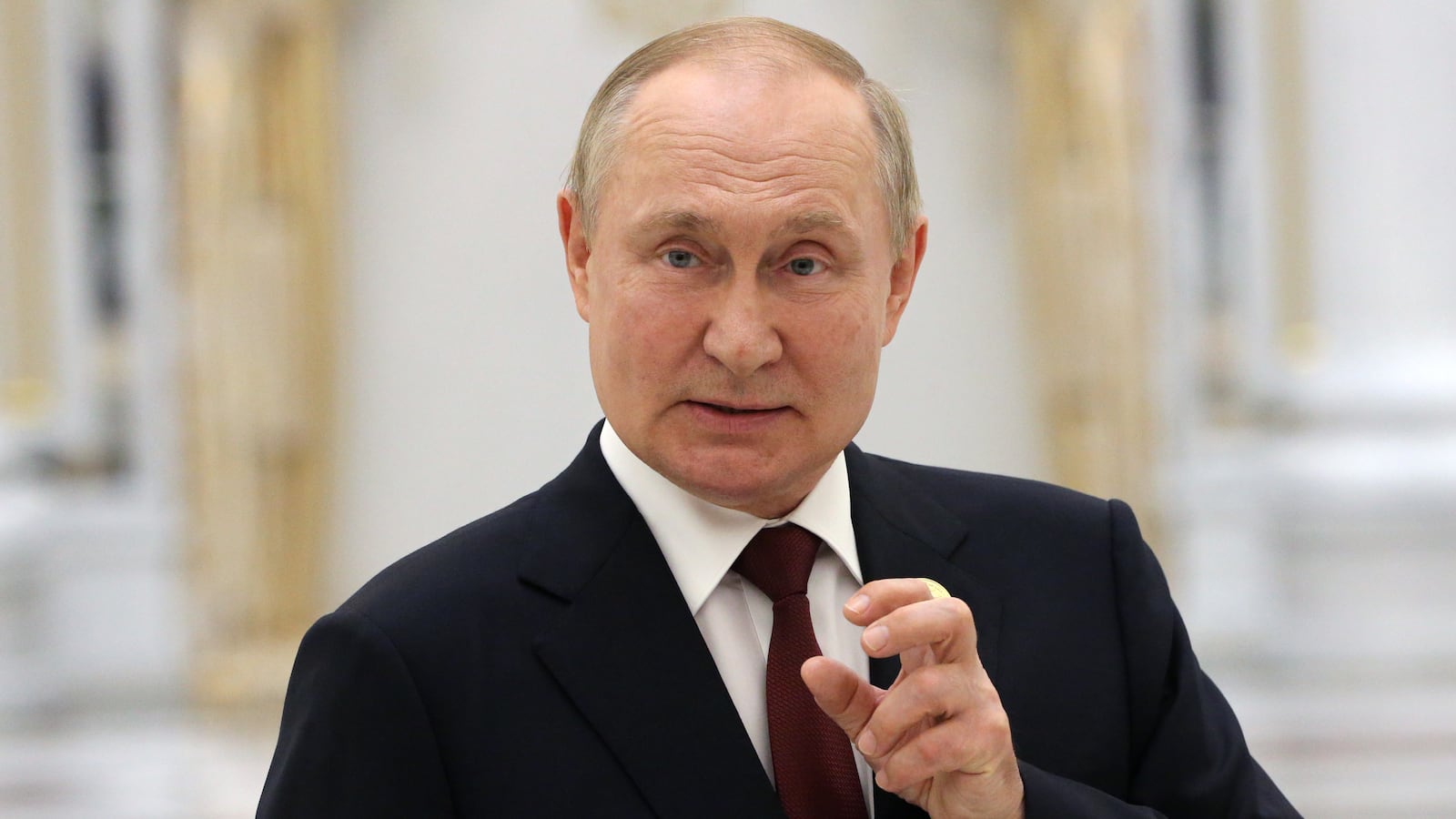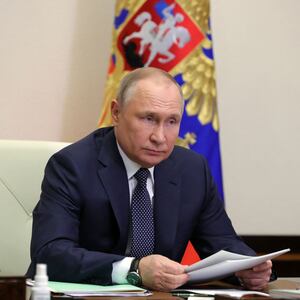The spigot on Europe’s largest gas pipeline funneling Russian gas into the bloc closed at 6 a.m. Monday for a ten-day maintenance, and almost no one believes it will be turned back on as scheduled.
Repairs on the Nord Stream 1 pipeline—which carries 55 billion cubic meters of gas each year from Russia across the Baltic Sea into Germany—are expected to give the Kremlin an opportunity to show just how reliant Europe is on Russian gas. An extended closure will undoubtedly also underscore the hypocrisy of sanctions—which exempt Russian gas—that have for the most part meant Russia is actually earning more on fuel exports than in the last decade.
Russia’s Gazprom also suddenly reduced gas flow by a third into Italy on Monday, citing unplanned repair work, which means one of the backup pipelines for Nord Stream’s scheduled maintenance is also drying up.
The summer gas flows are largely used to fill reservoirs for the winter months, which were depleted after Russia reduced exports when the war in Ukraine broke out. Russia also cut off Poland, Bulgaria, Finland, and the Netherlands entirely after those countries refused to pay for the gas in rubles.
Energy experts across Europe have warned for weeks that sanctions give the Kremlin incentive to further weaponize Europe’s unbalanced dependence on Russian fuel. The bloc’s largest importers, Germany and Italy, have launched plans to reduce their dependence on Russian gas, but neither country can effectively do so before 2023.
Canada, which has not yet returned a Nord Stream turbine it was repairing before Russia’s invasion, angered Ukraine over the weekend when it said it would exempt the repair and return it to help keep Europe’s gas online. Jonathan Wilkinson, Canada’s minister of natural resources, said over the weekend that it issued a “time-limited and revocable permit” to return the turbine to further bolster “Europe’s ability to access reliable and affordable energy as they continue to transition away from Russian oil and gas.” Ukraine’s defense minister on Sunday condemned the decision to return the turbine, saying Canada “is adjusting the sanctions regime to the whims of Russia.”
All eyes will be on the Nord Stream pipeline on July 21 when it is supposed to come back online, but Germany’s economy minister Robert Habeck said they were preparing for the possibility that Russia will find excuses to keep the flow stopped. “We are confronted by an unprecedented situation,” he said over the weekend. “Anything is possible.”






